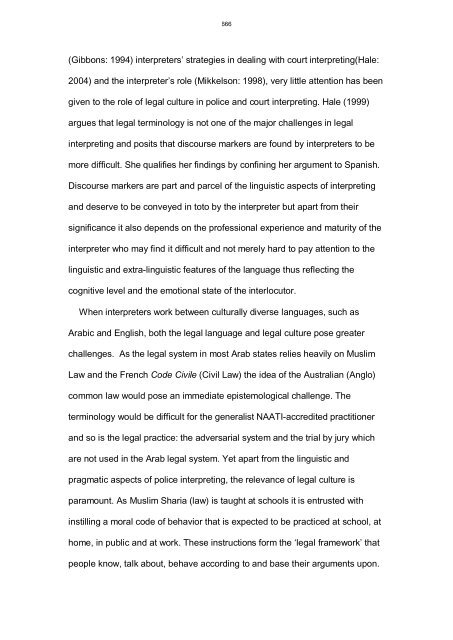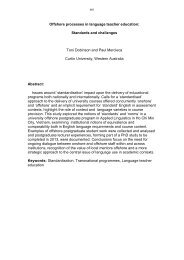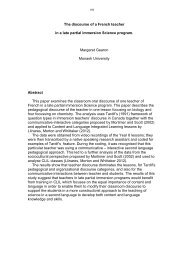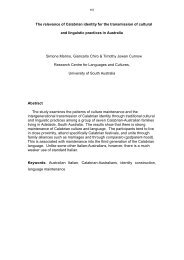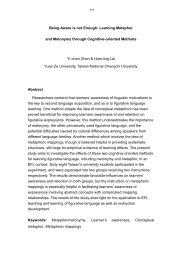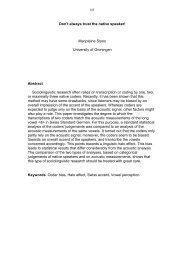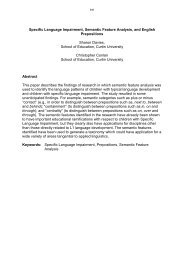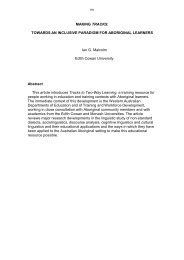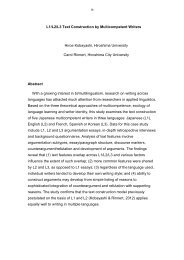Muhammad Gamal - Humanities
Muhammad Gamal - Humanities
Muhammad Gamal - Humanities
Create successful ePaper yourself
Turn your PDF publications into a flip-book with our unique Google optimized e-Paper software.
666(Gibbons: 1994) interpreters’ strategies in dealing with court interpreting(Hale:2004) and the interpreter’s role (Mikkelson: 1998), very little attention has beengiven to the role of legal culture in police and court interpreting. Hale (1999)argues that legal terminology is not one of the major challenges in legalinterpreting and posits that discourse markers are found by interpreters to bemore difficult. She qualifies her findings by confining her argument to Spanish.Discourse markers are part and parcel of the linguistic aspects of interpretingand deserve to be conveyed in toto by the interpreter but apart from theirsignificance it also depends on the professional experience and maturity of theinterpreter who may find it difficult and not merely hard to pay attention to thelinguistic and extra-linguistic features of the language thus reflecting thecognitive level and the emotional state of the interlocutor.When interpreters work between culturally diverse languages, such asArabic and English, both the legal language and legal culture pose greaterchallenges. As the legal system in most Arab states relies heavily on MuslimLaw and the French Code Civile (Civil Law) the idea of the Australian (Anglo)common law would pose an immediate epistemological challenge. Theterminology would be difficult for the generalist NAATI-accredited practitionerand so is the legal practice: the adversarial system and the trial by jury whichare not used in the Arab legal system. Yet apart from the linguistic andpragmatic aspects of police interpreting, the relevance of legal culture isparamount. As Muslim Sharia (law) is taught at schools it is entrusted withinstilling a moral code of behavior that is expected to be practiced at school, athome, in public and at work. These instructions form the ‘legal framework’ thatpeople know, talk about, behave according to and base their arguments upon.


